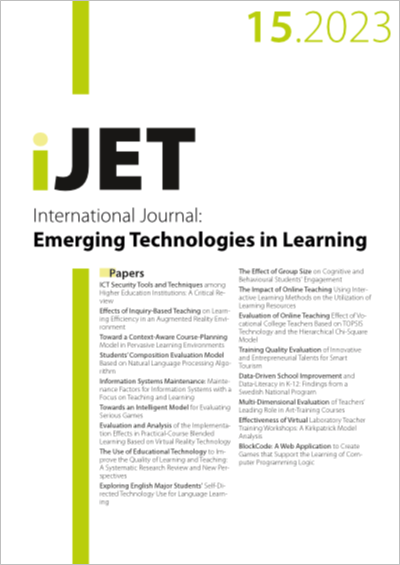Evaluation and Analysis of the Implementation Effects in Practical-Course Blended Learning Based on Virtual Reality Technology
DOI:
https://doi.org/10.3991/ijet.v18i15.42379Keywords:
virtual reality, practical courses, blended learningAbstract
Practical-course blended learning based on virtual reality (VR) technology combines VR with traditional practical teaching, which provides students with a more diverse and personalized learning experience. The existing evaluation and analysis methods of teaching model implementation effects have shortcomings. Although VR technology plays an important role in practical-course blended learning, excessive reliance on technical means may lead to limitations in evaluation methods. Therefore, this study aimed to explore the evaluation and analysis of implementation effects of VR-based practical-course blended learning. Different types of teaching models were represented. A robust multi-target collaborative tracking method based on variational Bayesian inference was applied to track and evaluate the implementation effects of practical-course blended learning. The experimental results verified the effectiveness of the proposed method and explored the impact of different teaching models on the average scores and score stability of evaluation methods. Analysis results of score data showed that the assisted-teaching model improved the homework performance of students and the blended-learning model improved the performance of students in tests and final exams, while the complete teaching model performed more balanced in all aspects.
Downloads
Published
How to Cite
Issue
Section
License
Copyright (c) 2023 Nan Zhang (Submitter); Man Peng

This work is licensed under a Creative Commons Attribution 4.0 International License.



